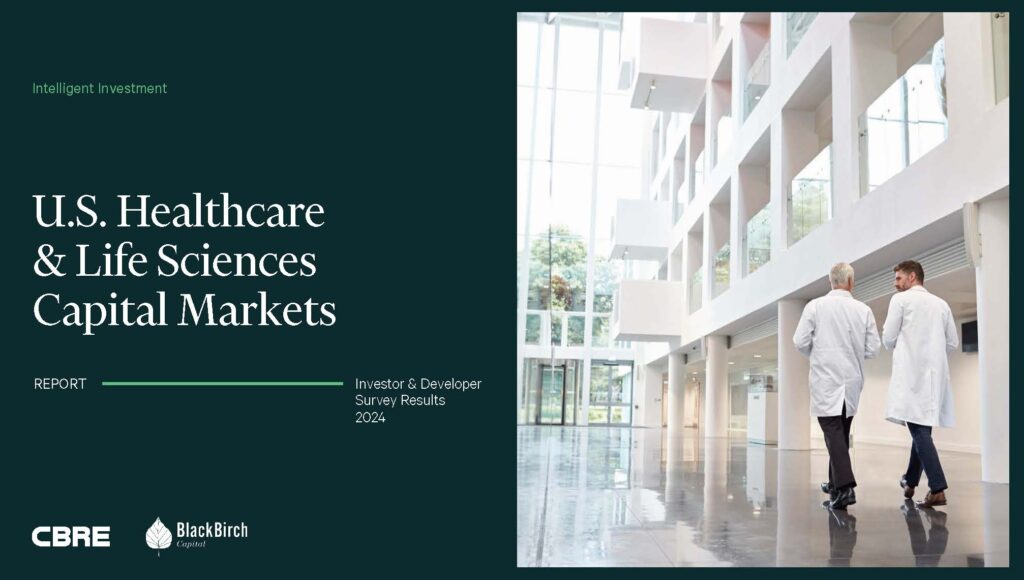 Investors are ready to invest in the HRE sector in 2024.
Investors are ready to invest in the HRE sector in 2024.
According to the 14th annual Investor & Developer Survey conducted by the U.S. Healthcare Capital Markets of CBRE Group Inc. (NYSE: CBRE), investors have increased the amount of capital they have earmarked for the healthcare real estate (HRE) sector in 2024 compared to 2023 and the historical average during the 14-year history of the survey. According to more than 100 respondents to the CBRE survey – which distributed the survey to about 500 potential HRE investors – investors have allocated about $15.7 billion in 2024 to the property type.
That total is “significantly above the historical average of $11.7 billion,” CBRE notes in a report of the responses it received. It also represents a 17 percent year-over-year increase from the $13.5 billion allocated for HRE investments in 2023. “We attribute the increased allocation to healthcare real estate’s stability in times of volatility and shifts away from other property types experiencing challenges, such as traditional office.”
The highest allocated total in the history of the survey was in 2022, when $17.1 billion was allocated.
The 2024 survey also contained 32 questions on various facets of the healthcare and life sciences real estate market. Highlights of those responses indicate that “higher interest rates and general uncertainty in the economy’s current direction continue to impact commercial real estate markets. For the second year in a row, most healthcare real estate investors, 75 percent (of respondents) identified rising interest rates as the greatest challenge they expect to face in 2024, indicating their continued focus on debt markets and close attention to future actions of the Federal Reserve.”
In other findings, CBRE found that “investors continue to be drawn to high-performing markets, particularly in the Sun Belt region, with Dallas/Fort Worth, Atlanta and Nashville (Tenn.) as favorites among investors in 2024. The Sun Belt has experienced continual growth due to its business-friendly environment, lower cost of living and mild climate.”
The survey also found that about 71 percent of the investors “predict that a market cap (capitalization) rate for Class A, on-campus product will be less than 6.50 percent in 2024, compared to 85 percent in 2023.” Also, 80 percent of the survey respondents, compared to 86 percent in 2023, predict that the cap rate for Class A, off-campus MOBs will be less than 7 percent in 2024.
“While healthcare fundamentals remain strong, interest rates and economic uncertainty have steadily pushed cap rates and return metrics up from the historical lows experienced at the beginning of 2022.”
A strong majority, 69 percent, of the respondents said they plan to be “net buyers of healthcare product in 2024. Of the respondents, 79 percent of all private capital and 93 percent of institutional healthcare investors consider themselves to be net buyers.”
As noted, the survey was distributed to 500 of “real estate’s most influential healthcare real estate trusts (REITs), institutional healthcare investors, private capital investors and developers” throughout the country.
Among the responses were the following: 75 percent said they believe HRE is moderately recession resistant, while 22 percent said they believe the property type is significantly recession resistant; bank debt has remained the most popular financing source among respondents, 82 percent, which is similar to the past five years, followed by all-cash, 41 percent, and debt from life companies, 36 percent, which is also consistent with previous years.
To download a complete copy of the CBRE report, please visit: https://www.cbre.com/insights/figures/q4-2023-us-medical-outpatient-buildings-figures
The full content of this article is only available to paid subscribers. If you are an active subscriber, please log in. To subscribe, please click here: SUBSCRIBE





